Top training survey questions
- Do you know how to fulfill your roles and responsibilities?
- Do you feel comfortable using company technology?
- What topics would you like to learn about?
- How long do you expect training sessions to last?
- How do you rate the quality of the instructor?
- Was the training volume appropriate?
Training programs are essential for maintaining an effective workforce. Organized and comprehensive training helps onboard new employees quickly. Clear training programs can also ensure process and systems transitions go smoothly — for example, if you’re introducing a new project management system or other software.
According to a workplace learning and development study by SHRM, 48 percent of employees said training opportunities affected their choice of company, and 76 percent of employees said they were more likely to stay at a company that offered continuous training.
Surveys can measure how effective your training programs are. By asking the right questions, you can identify what’s working well, what other resources might be needed, and if there are specific staff members who want a little more support. In addition, focused training survey questions give you insight into how you can improve future training programs.
Just so you know
Make your own free online training survey to get important training feedback, fast.
The importance of training survey questions
Effectively onboarding new employees is essential for ensuring they have a positive start at your company and for helping you make a quick return on your investment in them. Organized and clear training for new employees helps them begin doing real work quickly. Your existing team will get the benefit of added support sooner, the new employees’ productivity and work quality will be higher, and valuable time will be saved by forestalling confusion and questions.
The best way to make sure you’re training new employees well is by asking them how they feel their onboarding went. Do they feel like their training was understandable and thorough? Did they get the documentation and team support they needed from the beginning? Or are they still uncertain or confused about their role and company processes?
Surveying employees after other kinds of training programs is also important. Major process transitions or systems changes can be destabilizing, and not all employees learn the same way or have the same knowledge gaps. Asking employees how confident they feel working with a new process or system after a training can help you make improvements for next time and support workers who might be confused.
9 training survey questions for new employees
You’ll probably want to ask new hires different training survey questions than existing employees — their needs and concerns are different. Here are some examples:
- Do you know how to fulfill your roles and responsibilities? This question clearly indicates whether a new employee got the key information they need to do their job.
- Were company processes thoroughly explained? Is anything still unclear? When you’ve been at a company for a while, you can forget that certain processes and practices aren’t obvious to new employees. Check with new hires to make sure they’re not feeling lost about the basics of how your team works together.
- Do you feel comfortable using company technology? Every company relies on different technology solutions, including sales software, project management tools, and email platforms. These programs aren’t always easy to use. See if your new employee feels like they received the tech training they might have needed or if you should add some platform basics to training materials for new hires.
- Do you know who to go to when you have questions? Having a supportive senior or more experienced team member guide a new employee on the job can be immensely helpful in getting them ramped up quickly and addressing any confusion.
- Do you have access to useful documentation on company processes and role responsibilities? Documentation is a great resource for new hires and for existing team members. Clear records of processes and procedures can be referred to whenever there are questions and can maintain continuity over time, even when there’s turnover. This also helps save time — it’s faster for a new employee to consult a document about a question than to ask a teammate and wait for an answer.
- How organized did you feel your onboarding was, on a scale of 1–10? This question can help you gather big-picture data about your training effectiveness.
- What could we have done better? Asking an open-ended question of new hires can help identify issues you might not have thought of and raise useful suggestions for next time.
- Do you have any outstanding questions about your role? New employees can sometimes be nervous about asking too many questions. Asking them directly if they still need help with anything can alleviate that concern.
- Did you feel like you had enough time to get acclimated before responsibilities started piling up? You don’t want to overwhelm a new hire with too much work while they’re still learning the ropes. Check in with them about how gentle their introduction to the company was.
9 pre-training survey questions
Asking training survey questions before doing a training can help you spot key employee learning needs. Pre-training survey questions are usually short and simple. Here are a few potential questions you might use:
- What are you hoping to learn from this training? You have a goal for the training, and you need to ensure that trainees understand the intention of the course and the company’s expectations of them. Do employee responses align with your training objectives, or can you better communicate the intent of the training?
- What topics would you like to learn about? List the answers to this question in categories. Examples could include customer service, reporting, company policies, negotiation, sales strategies, dealing with difficult coworkers, and more. Employee answers can provide guidance for future trainings that might be needed.
- What are your current goals for professional development? This question can help you support your employees’ career growth.
- What experience do you have in this field? Identifying your team’s experience level can help you allocate resources — employees already very familiar with a particular technology, for example, could probably better spend their time elsewhere.
- How do you prefer to learn new information? Some people learn best with independent reading, while others need more active guidance. Pinpointing individual learning methods can help you figure out how to meet different learning needs.
- What are the biggest questions you have about the topic of this training? Don’t waste time guessing what your employees need to know. Find out their big questions early on so you can prioritize them.
- How long do you expect training sessions to last? It’s important to understand how long employees think a training will take. This allows you to schedule sessions to effectively maintain attention and not cut into busy work periods.
- Which of the following training times best fits your schedule? Figure out the time slots that work best for most people.
- Would you prefer this training take place online or in person? Asking employees about their remote vs in-person learning preferences can help you design your program to fit workers’ needs.
Create a pre-training survey preloaded with these 9 questions.
9 post-training survey questions
Consider asking these important survey questions after the training to evaluate its effectiveness:
- How much new information did you learn in this training? Generally, a training is intended to impart new knowledge rather than reiterate existing practices. It can be a good idea to check in and make sure employees actually learned new things.
- How do you rate the quality of the information you learned? Have participants rate the training on a numerical scale. If a training receives a lot of low ratings, it probably means the content didn’t meet your employees’ needs or there was a quality problem with the training.
- How do you rate the quality of the instructor? Good teachers can make all the difference, at work as well as at school. Ask participants for feedback about the course instructor.
- Was the training relevant to your job? Make sure the course is relevant to participants by asking how the information supports their current job requirements. This helps you determine whether the training was worth how much you invested in it.
- Do you have any suggestions for improving this training? Open-ended questions like this provide trainees an opportunity to bring up points you may not have considered and that other survey questions didn’t cover.
- Did the training meet your expectations? Why or why not? Measuring participants’ attitudes can be an indication of their willingness to participate in future training courses. Ensuring the content and quality of the training meets trainees’ expectations helps streamline your overall training system.
- Do you feel this training would have been equally effective online/in person? Whatever the training format, find out if employees thought it worked well, or whether they would have preferred something else.
- Was the training volume appropriate? What you may see as a robust training program could actually be overwhelming your team. Honest feedback allows you to streamline your training, focus on the material that matters most, and avoid burning out your employees.
- Was the training material engaging? Keeping your employees engaged is essential to your program’s success. Even if employees found the training to be acceptable informationally, they may not have enjoyed participating in it — which could lead to lower retention rates.
How to create an effective training survey
Surveys can be a great tool for improving your training strategies, but unfocused surveys won’t yield useful information. Here are some tips for making a truly effective survey.
Begin with a clear goal
Start your survey creation process by pinpointing exactly what it is you want to find out. Setting clear goals ensures your survey has direction and purpose, which can guide your question generation process. Training surveys may be used for all sorts of purposes, including
- Improving a training program
- Identifying knowledge gaps and employee experience
- Evaluating training team effectiveness
- Expanding a training curriculum
Crafting your training survey with a central purpose in mind will help you gather focused results and develop a plan for acting on them.
Choose questions wisely
Once you’ve decided what you want your training survey to achieve, you can select training survey questions that align with your goals. Each question should contribute to the larger purpose of your survey.
Use the right survey tool
When it’s time to create your survey, you need the right tools to streamline your process and boost your training survey’s effectiveness. Jotform is a powerful online form builder that lets you easily build highly customizable surveys from scratch or from templates.
With Jotform, you have access to useful features like
- An intuitive drag-and-drop form builder
- Over 2,000 survey templates, including a training evaluation form
- Automated data analysis through Jotform Report Builder
- Data storage and organization with Jotform Tables
- On-the-go surveys with the Jotform Mobile Forms app
With Jotform, you can access a multitude of question types, from open-ended and multiple-choice to rating scales and input tables; customize your survey’s design to match your company’s branding; connect your survey with over 240 useful software integrations; and so much more.
Jotform’s solutions can help you create effective training surveys and analyze the data you gather to ensure your employee trainings are clear, useful, and engaging.
Survey templates
If you’d like to use an online survey to evaluate the effectiveness of your training, Jotform is here to help. Our more than 2,000 survey templates can help you get a quick start designing your training survey. Start with our training evaluation form template, for example, then easily customize it. Add or remove training survey questions, drag and drop questions to move them around, change the fonts and colors, modify the layout, add useful widgets, and more. You can also use Jotform’s Form Builder to build a survey from scratch.
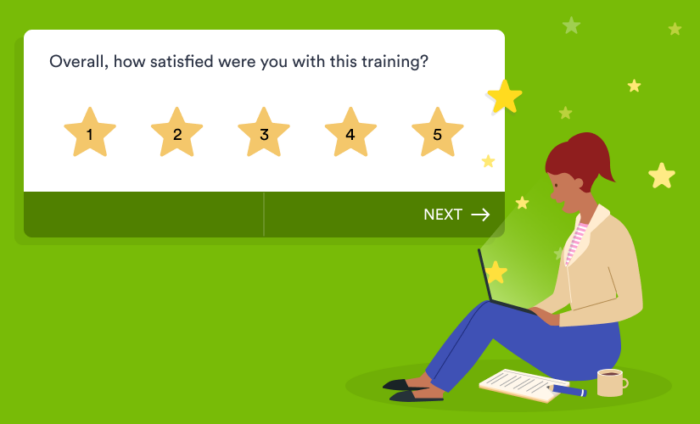

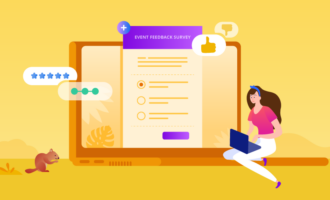




























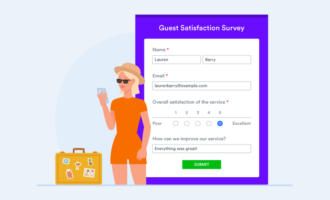
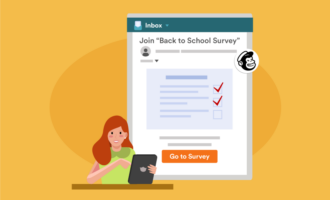



























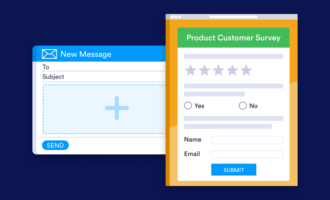







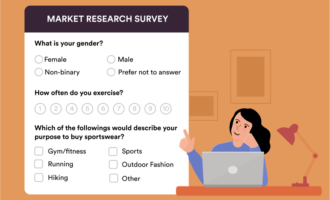




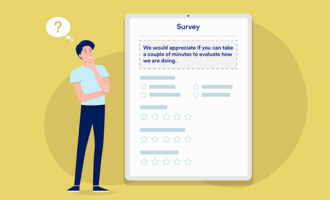




























Send Comment: